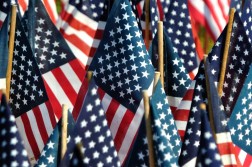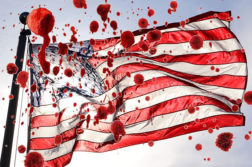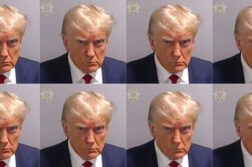A few months ago I was contacted by an old student of mine, a former member of the Israeli Defence Force, who had become an activist and researcher working tirelessly on the Israel-Palestine conflict. His news was that he had lost all interest in this area, and had given up on his work to focus on medical studies. Looking fatigued when discussing the conflict, his reason for turning his back on it was: "Both sides know what the answer to the conflict is — they just are not willing to make the necessary concessions. The leaders act like fools while innocent people die."
The ongoing conflict is not one of my research areas, but anytime an activist turns their back we move one step further away from solving this conflict. Why? The answer is — though I may sound more like a hippy than an academic when I say this — because there is a decline in "hope". Let me explain.
There are two essential ingredients required for a society to function: hope and forgiveness. Both these are elements that allow us to live together, confront challenges and opportunities, and find ways to overcome those moments in our history where injustice has emerged.
By hope I mean a belief that "a better world is possible" and that one’s own actions have a role to play in achieving this. One of Australia’s most important intellectuals, Ghassan Hage, has written that hope is something that exists on both a personal and societal level — though these are related. Importantly, hope is not passive: hope emerges through our actions, not through sitting around merely waiting for a better world to emerge. Hope, then, is found in struggles for justice and political activity. In "decent" societies, according to Hage, there is a capacity to distribute hope.
The second ingredient is forgiveness — and there is no better scholar than Hannah Arendt to explain why forgiveness is such an important element in society. For Arendt, forgiveness is a simultaneous release from the past as well as a shared commitment to the future. This does not unbind us from the consequences of past actions, but rather, because it must be requested, it acknowledges a harmful act. In this way, our past becomes shared — we find a space with agreement — and then building a future is possible.
The key here is that hope, like forgiveness, does not diminish when openly distributed, but actually expands. Both hope and forgiveness are, therefore, created and expanded through reciprocated interactions. Here we can think of these as like ingredients for a magic pudding: the more we share, the bigger they grow.
Why has newmatilda.com given me space to raise these issues?
As Antony Loewenstein reported here yesterday, the deaths caused by the Israeli commandos who stormed the humanitarian flotilla have once again undermined moves for peace. The events, as we know them, show Israel is intent on its own idea of security no matter the cost. The result, according to observers such as Professor Ben Saul, is that through its own policy, Israel is actually unravelling its own security.
Even if Israel’s versions of events are confirmed and their soldiers were attacked, it is hard to believe that the Israeli Government would not have foreseen the international outrage that would follow. At best, it is incompetence and at worst it is an act of belligerence.
Consequently, it seems to confirm the belief that the compromises required for peace are being ignored. This clearly undermines hope and the opportunity for forgiveness. Both sides of the conflict have been responsible for outrageous acts, and both sides need to come to the table with a sense of hope that we can achieve a better and peaceful world as well as be willing to ask the other to forgive.
What is the result if we turn our back on hope and forgiveness?
In the absence of hope, such a vision of a shared and better world quickly diminishes. From an international relations perspective, a lack of hope leads to a focus on individualism and competition. This is a "negative hope" and we feel threatened that hope is limited and will be consumed by others. Here hope is not reciprocated but withheld.
Further, without forgiveness, we are never released from the consequences of past deeds. This, according to Arendt, means our capacity to act is limited by a past endeavour that will always limit our actions. Without the ability to forgive, we deny the humanity of others by ignoring their suffering, emotions and feelings.
The deaths of the activists have already caused tensions. Rather than claim and counter-claim about who did exactly what, now is the time to look for hope and forgiveness. If this doesn’t happen then the current cycle of violence and oppression will continue, and yet another generation will be condemned to endure this conflict.
Donate To New Matilda
New Matilda is a small, independent media outlet. We survive through reader contributions, and never losing a lawsuit. If you got something from this article, giving something back helps us to continue speaking truth to power. Every little bit counts.




